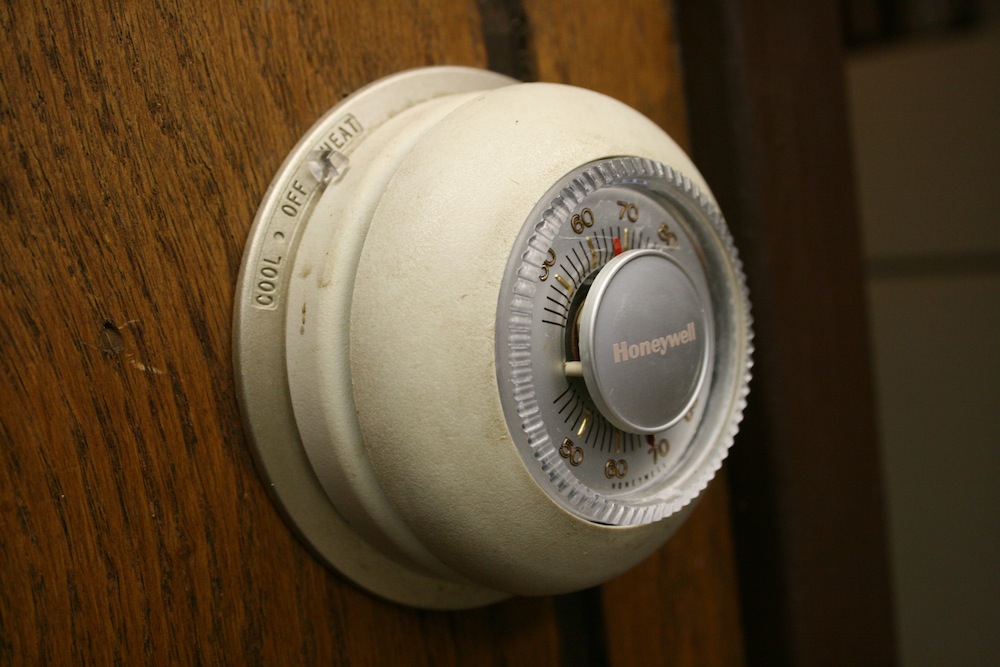Recent research that looks at the method used to determine thermal comfort in ANSI/ASHRAE Standard 55 published in an article, “Energy Consumption in Buildings and Female Thermal Demand,” in Nature Climate Change, misinterpreted data, according to ASHRAE.
“The interpretation of the authors regarding the basis for Standard 55 is not correct,” Bjarne Olesen, Ph.D., a member of the ASHRAE Board of Directors, thermal comfort research and former chair of the Standard 55 committee, said. “The part of the standard they are referring to is the use of the PMV/PPD index. This method is taken from an ISO/EN standard 7730, which has existed since 1982. The basic research for establishing comfort criteria for the indoor environment was made with more than 1,000 subjects with an equal amount of women and men.
“In the main studies, where they did the same sedentary work and wore the same type of clothing, there were no differences between the preferred temperature for men and women. So the researchers’ finding of a lower metabolic rate for females will not influence the recommended temperatures in the existing standards. Also their study is not conclusive. They only studied 16 females at a sedentary activity.
“They should also have studied 16 men at the same activity to be able to compare. The reason why we, in some field studies, find that women prefer higher room temperature than men is attributed to the level of clothing. Women better adapt their clothing to summer conditions while men are still wearing suits and ties. So if the thermostat is set to satisfy the men, the women will complain about being too cold. In the standard, this adaption of clothing to summer is taken into account. So if the standard is followed, the women would be satisfied; but maybe not the men.”
Related Stories
Codes and Standards | Jan 9, 2023
EPA reverses course on clean water rule changes enacted by Trump administration
After long legal battles and extensive debate over the expansiveness of the Clean Water Act, the Environmental Protection Agency repealed changes enacted by the Trump administration.
Multifamily Housing | Dec 29, 2022
San Jose is largest U.S. city to abolish minimum parking for new housing
San Jose, Calif., recently became the largest U.S. city to strike down minimum parking requirements for new housing development. The city reversed zoning devised in the 1950s that reputedly gave it the worst sprawl of parking space in northern California.
Codes and Standards | Dec 29, 2022
New York City multifamily owners concerned over fires caused by e-bikes
In 2022, there have been nearly 200 fires and six deaths in New York City caused by lithium-ion batteries used in mobility devices such as electric bikes and scooters.
Sponsored | Resiliency | Dec 14, 2022
Flood protection: What building owners need to know to protect their properties
This course from Walter P Moore examines numerous flood protection approaches and building owner needs before delving into the flood protection process. Determining the flood resilience of a property can provide a good understanding of risk associated costs.
HVAC | Dec 13, 2022
Energy Management Institute launches online tool to connect building owners with HVAC contractors
The National Energy Management Institute Inc. (NEMI) along with the Biden administration’s Better Air in Buildings website have rolled out a resource to help building owners and managers, school districts, and other officials find HVAC contractors.
Green | Dec 9, 2022
Reaching carbon neutrality in building portfolios ranks high for organizations
Reaching carbon neutrality with their building portfolios ranks high in importance among sustainability goals for organizations responding to a Honeywell/Reuters survey of senior executives at 187 large, multinational corporations. Nearly nine in 10 respondents (87%) say that achieving carbon neutrality in their building portfolio is either extremely (58%) or somewhat (29%) important in relation to their overall ESG goals. Only 4% of respondents called it unimportant.
Green | Dec 9, 2022
Newly formed Net Zero Built Environment Council aims to decarbonize the built world
Global management consulting firm McKinsey recently launched the Net Zero Built Environment Council, a cross-sector coalition of industry stakeholders aiming to decarbonize the built world. The council’s chief goal is to collaboratively create new pathways to cut greenhouse gas emissions from buildings.
Energy Efficiency | Dec 6, 2022
Washington state’s Building Code Council mandates heat pumps in all new residential construction
The Washington State Building Code Council has voted to require heat pumps for all new residential construction starting in July 2023. The new mandate has drawn criticism over concerns that it will add costs to housing construction, especially given current supply chain challenges for heat pumps.
Geothermal Technology | Dec 6, 2022
Google spinoff uses pay-as-you-go business model to spur growth in geothermal systems
Dandelion Energy is turning to a pay-as-you-go plan similar to rooftop solar panel leasing to help property owners afford geothermal heat pump systems.
Contractors | Dec 6, 2022
Slow payments cost the construction industry $208 billion in 2022
The cost of floating payments for wages and invoices represents $208 billion in excess cost to the construction industry, a 53% increase from 2021, according to a survey by Rabbet, a provider of construction finance software.
















